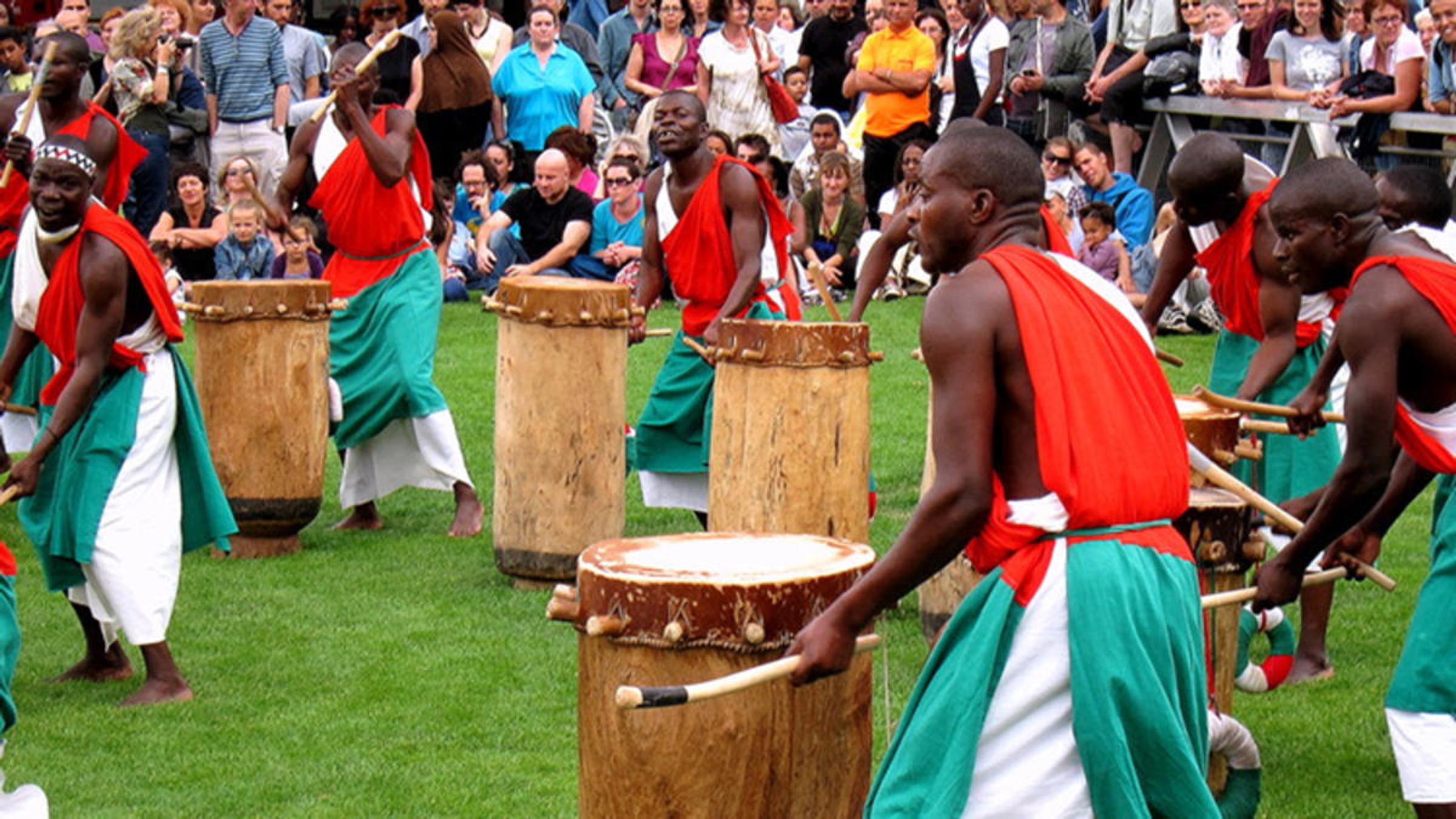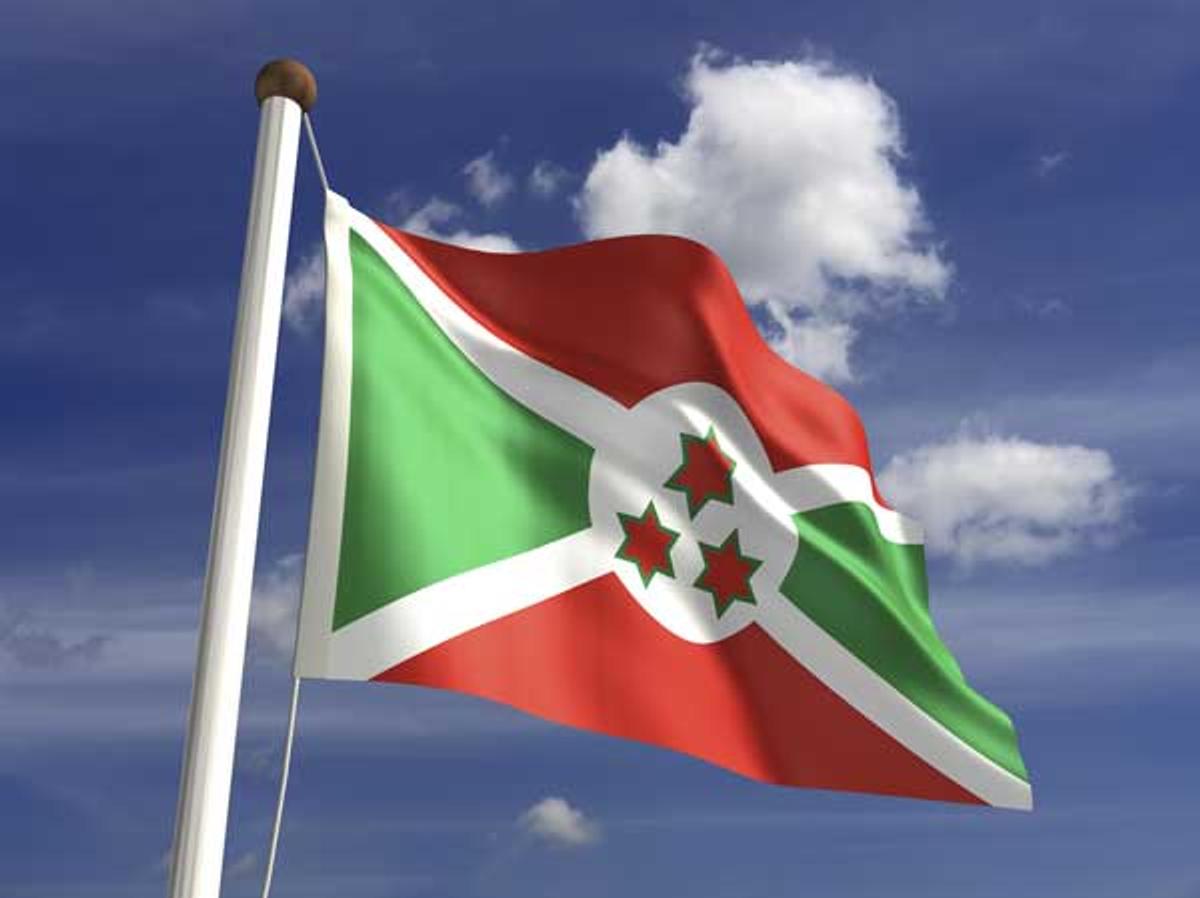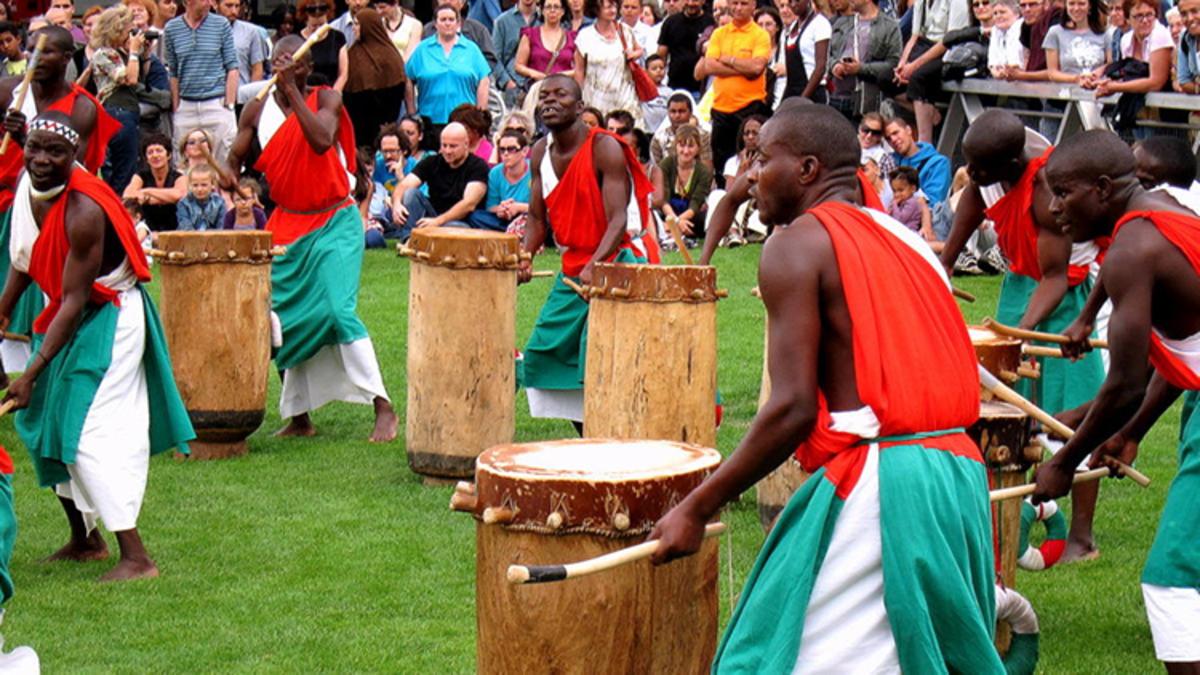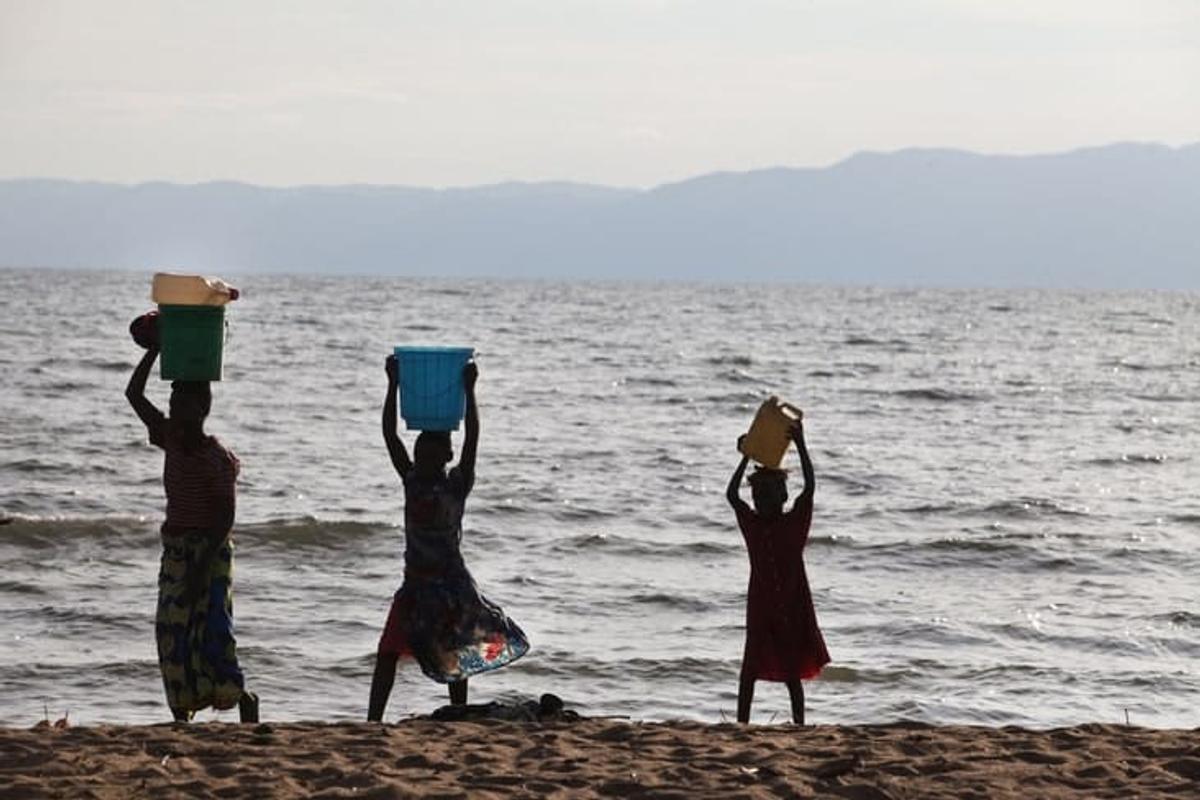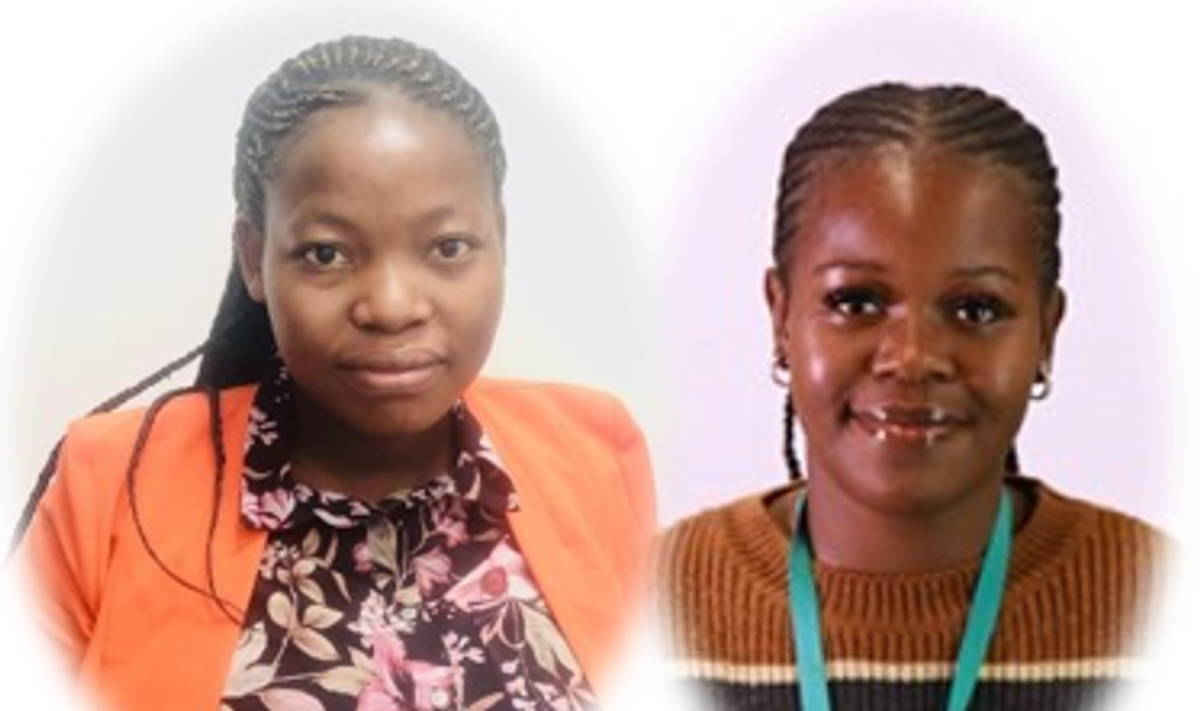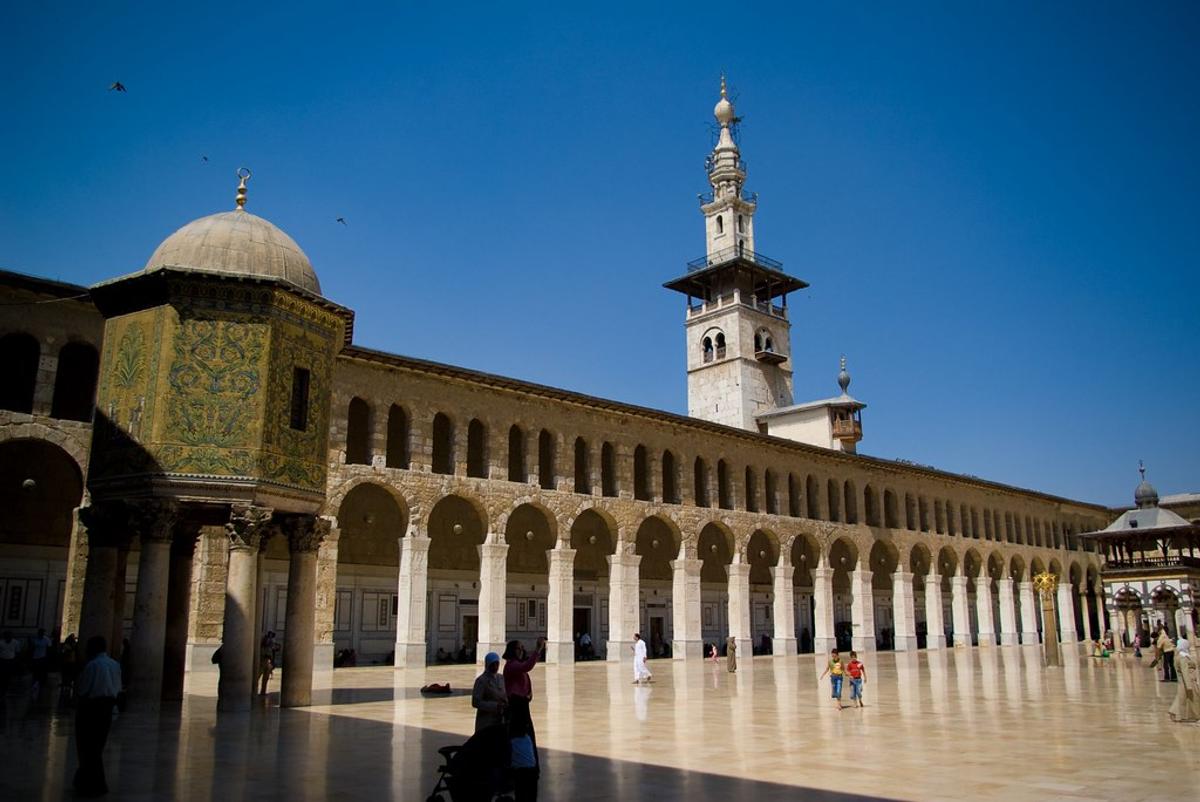Burundian Culture
The Burundian Flag has three colours. White sympbolizes peace, Red symbolizes the suffering of the nation during its freedom struggle and Green represents the nation's hopes placed on future development and the land. The three stars represent the tribes in Burundi which are: the Hutu, the Twa and the Tutsi
Greetings:
Greetings in Burundi are full of expressions of wishes for peace for individuals and for the whole community
- In the morning, you say mwaramutse, which means ‘did you wake up?’ It can also mean ‘did you survive?’ This question is about surviving the unexpected challenges that can happen in the dark of the night. Which can be answered with “turaho” which means either ‘yes we are here,’ ‘yes we still are alive,’ or ‘yes we still existing
- Another form of greeting for any time of the day Is “amakuru’ which means What’s the news? And the answer to that is “ n’amahoro (‘it is peaceful,’ or ‘it is calm’.
- Burundians are sociable people who greet friends and relatives warmly and visiting each other often . Handshaking is a common greeting as is hugging, kissing cheeks.
- It is expected that first names will be used by practitioners in greeting (otherwise aunt and uncle are used as a term or respect for elders)
- Hand shaking is acceptable across genders. The right hand is used for shaking, the left hand used to support the lower right arm when respect is being shown
- It is common for Burundians to hug, kiss cheeks and touch heads with people they are familiar with
- Showing respect, especially for elders, is appreciated (eg greeting the elders first, the practitioner being on time for appointment, greeting them in their traditional way)
- Men greeting men – a handshake is appropriate. Women greeting women – a handshake and/or nod of acknowledgment is appropriate. Greetings between men & women – the man should follow the lead of the woman, who may decide to shake hands or to simply nod in acknowledgment
- Elders are cherished and greeted respectfully in Burundi. Words mostly used to greet Elders is “shikamo” to anyone older than you, which literally translates to ‘I hold your feet’ and the response, “marahaba” which translates to ‘I accept your respect’, recognizes your respect. When you shake hands with an elder, you can also bow slightly and hold your right elbow with your left hand, these gestures signify deeper respect and are well received.
Burundian ladies fetching water for home utility from the lake.
Communication:
Verbal
- Communication: Most people tend to be very indirect, talking around issues instead of discussing them directly. Conversations are usually preceded by questions about the family, job and so on
- Hierarchy: The communication is always from parents to children, from the elders to members of the community. Elders are the one's who advise children who have made a mistake, or to prepare them for the future using their wise words
- Raised Voices: Raising one’s voice at someone at any age is very disrespectful.
- Blessings: Blesses and curses are said on a daily basis in Burundi. These are short expressions that wish for God’s intervention depending on the situation (e.g., “May God give you health” or “May God curse your soul”). Blessings are often said instead of a ‘Thank you’.
- Refusals : Giving direct refusal in a communication is considered rude especially to people who are older than you and this may break the relationship or trust between the two people . The best way to say no to someone is by waiting for a period of time and then ask for a meeting with that person and explain the reason why you can not do it or by using words like “ I will see what I can do“
- Group Discussion: Burundians tend to prefer conversing in groups. One-on-one communication between two individuals may be approached with trepidation as the directness of it is usually reserved for those that they have a familiar relationship with. This is done by sharing meals and special drinks to strengthen the bond between community members .
Non-Verbal
- Hands: Handshakes are important, and the type varies by location. One version involves touching one's left hand to the other person's elbow. People stand close together in conversation and often continue holding hands for several minutes after shaking.
- Eye Contact: Be aware that eye contact is maintained between people of equal stature but may be avoided otherwise. Avoiding eye contact is a sign of respect. Traditionally, direct eye contact is considered rude. Lowering or averting the gaze is a sign of respect.
- Physical Contact: Touching someone shows that you know them well and is not advisable unless the individual indicates this is okay and is at the same level as you but public display of affection between opposite genders are considered to be inappropriate
- Personal Space: depends on the relative rank of a person’s position, the greater the gap in rank, the greater the distance maintained and it’s usually up to the individual of higher rank to tell you to move closer. A little less than an arm’s length apart tends to be the average
- Gestures: Tapping your hand on your head (as if frustrated) can be interpreted as meaning you feel disdain for the person you are talking to. The thumbs-up symbol and the symbol for ‘Okay’ (with the forefinger and the top of the thumb meeting to form a circle, with the other fingers stretched out) can be considered lewd or rude
- Waving hands is a sign to say hi or good bye.
- Pointing : They point to someone by holding an arm out with the hand open and palm upward . Pointing someone with the index finger is considered very rude and should be avoided.
- Feet: In Burundi people, especially children are not allowed to put their feet down when angered because it is show of disrespect to parents and elders .
- Ears : Holding ears or blocking them when someone is talking is a sign of disrespect and ignorance of what someone is telling you .
- Winking: Winking in Burundi is a form of sexual seduction from strange people and it is a show of disrespect to people, therefore, it should be avoided all the time
- Nodding: Nodding is allowed in Burundi when you are communicating with someone, it Is a symbol that you agree with what someone is talking about .
- Smiling: Burundians tend to have quite a serious front and may not smile at strangers often. Don’t expect to receive many smiles until you have gotten to know them, and they feel safe and comfortable around you
Do's and Don'ts:
Do’s
- Say a Greeting to everyone even from strangers as many people enjoy simply saying hello.
- When shaking someone’s hands make sure to use both hands to show respect, or a hug to show love and appreciation.
- Expect Burundians to behave formal and serious when meeting them for the first time , they are more relax and tend to show their true colours with time .
- It is important to ask the wellbeing of the person and their family when you meet them before you can carry out further discussion .
- Pay attention to smaller acts of hospitality and courtesy by consistently offering to put others before yourself. It is expected that you are considerate of other’s needs without them having to articulate what those are.
- Barter and bargain when purchasing handicrafts and homewares. Most shopkeepers are likely to give a substantial discount from the quoted price, and it helps form relationships.
Don’t
- Touching other people, or food, with your left hand, is a big NO. Do not shake hands, eat, or give money and gifts with this hand as it’s reserved for toilet business. Use the right hand instead
- If you’re invited to eat, do not sniff your food or decline to taste a dish, or you risk insulting the cook.
- When using humour don’t go overboard as you’ll not be taken seriously. The best way to go is just to avoid sarcasm as it will most likely be misunderstood.
- Never insult a Burundian in public. This is highly disrespectful and considered a direct act of dishonour instead if someone you have an issue with, you can have a meeting and show you differences so that you reconcile and live-in peace.
Burundian capital city Bujumbura
Presentation, preparation, & Cultural Review by
Yvette Siriyamungu & Sifa Mireye-Karakoc
Syrian Culture
Greetings
- Syrian greetings are usually prolonged and include questions about each other’s’ well-being.
- In formal settings, greetings involve a handshake with the right hand only. Arab men may shake hands very gently.
- If an Arab does not touch someone he greets, it is usually because he perceives the person is unaccustomed to being touched.
- Shaking a female’s hand is not appropriate unless she outstretches her hand first. Many Syrian men greet women by placing their hand on their own chest and saying hello.
- Informal greetings between people of the same gender may involve a hug, or two kisses on each cheek between males.
- To kiss one’s forehead or right hand denotes extreme respect, but it is not acceptable for a male to kiss a female in this manner if they are not related.
Communication
Verbal
- Indirect Communication: Syrians generally communicate in an indirect fashion. One’s express point is generally reached in a long, roundabout way. This has the purpose of avoiding embarrassment or offence and respecting the other person in the conversation. The best way of reaching an understanding is to ask open-ended questions that allow them to reach their answer in their own time and give agreeable and accepting responses that do not directly disrupt the speaker’s discussion.
- Communication Style: Syrians commonly joke and banter during conversation. Men often try to one-up each other with witty insults. The humour is likely to be different to what a Westerner is familiar with, however somewhat easy to engage with.
- Raised Voices: Raising one’s voice is not immediately interpreted as aggressive in Syria. Speaking loudly and with passion shows one’s sincerity and investment in a matter. Such genuine expression often gives leverage and appeal in discussions and is not necessarily a sign of anger or offence.
- Refusals: To questions and requests which require a yes or no answer, a Syrian’s preoccupation with appearances and politeness automatically requires that they answer “yes” whether it is true or not. A flat “no” can indicate that you want to end the relationship. The polite way to say no is to say something along the lines of, “I’ll see what I can do”, no matter how impossible the task may be. After the person has been queried several times concerning their success, an answer such as, “I’m still checking” or something similar signifies “no”. Such an indirect response also means “I am still your friend/ally, I tried”.
Non-Verbal
- Personal Space: People often sit and stand closer to each other than the Western norm. Some Syrians may stand at proximities that are slightly uncomfortable for you. In this case, keep in mind that they may not have been made aware of the Australian standard of personal space, and probably do not realise the awkwardness it can create.
- Physical Contact: Syrians are generally very comfortable touching people of the same gender. People often hug and kiss one another, lean on each other and walk holding hands or with linked arms. This display of affection between friends of the same gender or family members is more common in public than that between a husband and wife. However, affectionate conduct between a man and a woman is likely to draw the quick assumption that they are in a romantic relationship.
- Feet: Displaying the soles of your feet to someone is considered rude.
- Eye Contact: Syrians expect people to maintain eye contact during interaction. It demonstrates respect, attentiveness, and confidence. However, devout Muslims may lower their gaze when talking to those of the opposite gender.
- Body Language: Syrians may be quite animated when they communicate. They typically gesture largely with their hands and head to emphasise their words. The theatrics of their mannerisms sometimes distract from the conversation, often causing it to digress. To a non-Syrian this body language can make a casual conversation seem quite intense.
- Refusals: Tilting one’s head back while raising the eyebrows can indicate “no”.
Do's and Don'ts
Do’s
- Be sensitive to the possibility that a person may have ongoing mental or physical health problems from the effects of conflict. It is highly likely that a Syrian-born person in Australia has experienced undue suffering from the effects of the Syrian Civil War, the Assad regime or insurgent forces.
- If the opportunity arises, offer sympathy to the current situation in their home country. Syrians are likely to deeply appreciate the gesture and respond with warmth.
- Expect a Syrian to try to get to know as much about you as possible immediately after meeting you. You may find their questions blunt or too forward (e.g. “Are your parents still alive?”), but be courteous and understand that this is the common way of acquainting themselves with people.
- Relax and feel comfortable to speak informally. Australians can underestimate the easy-going approach of many Syrians. Though Syrian etiquette is noticeably cordial and chivalrous, this does not translate to mean people are uptight about their conduct.
- Offer compliments and praise their good points when possible.
Don'ts
- Avoid talking about the Syrian political situation unless your counterpart initiates the conversation. It is a sensitive and painful topic; they may not wish to recall or think about it. Additionally, do not ask your Syrian counterpart to explain the conflict situation to you. If this conversation does occur, you may find that they become dismayed/frustrated by the average Australian’s lack of knowledge regarding the biggest humanitarian crisis.
- Avoid saying anything that could be taken as insulting or derogatory. Take an indirect approach towards corrective remarks, being sure to always include praise that minimises potential offence.
- Avoid asking questions about a Syrian man’s female family members. It is appropriate and appreciated to ask someone about their family’s general health, but specific questions into the private lives of females can be mistaken for overt interest or even disrespect by conservative Syrians.
- Do not patronise or talk down to a Syrian for having poor English skills.
- Avoid telling dirty jokes. Such humour is not appreciated.
Presentation and preparation by: Cultural Review by:
Hussam Saraf & Hussam Al-Mugotir
